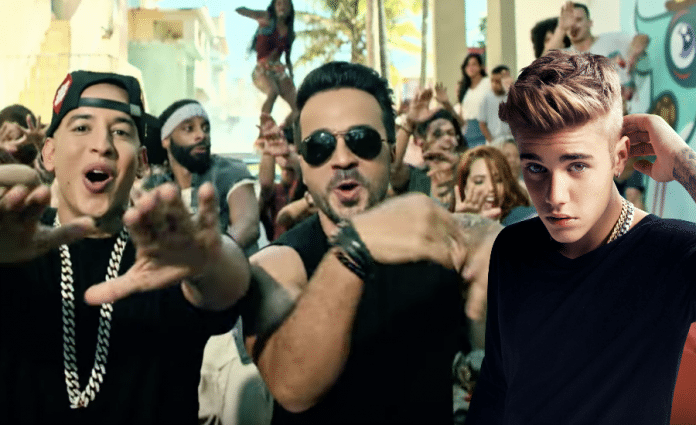
“Despacito” is the song you can’t get out of your head these days, and you are not alone. The hit is playing from every car or set of headphones.
“Despacito” has become a new global streaming record with 4.6 billion streams in only six months. It has been declared the official song of summer 2017.
The infectious song from Puerto Rico’s Luis Fonsi and Daddy Yankee features a remix with Justin Bieber. The magical team has launched the already popular song into another stratosphere. It is the first Spanish language song to hit the Billboard Hot 100 chart since 1996’s “Macarena.” The remix has only fluctuated from the number one spot a handful of times since it’s initial release in May.
During the past decade, Caribbean and Latin influenced music has been a fixture on the radio and Hot 100 charts. Now the rise of reggaeton in these spheres is a different force fueled by the music industry’s desire to sell the popular sound on a larger, global scale. It’s increase on Top 40 radio stations is perhaps also influenced rapidly rising Spanish-speaking population. A total of 56.6 million people are of Hispanic origin, and Hispanics make up the largest ethnic or racial group in the United States.
Reggaeton is typically a politically charged genre, while “Despacito” is not. In today’s politically fraught environment, the universal theme of seduction found on “Despacito” may be sung in Spanish but is part of a trend within the industry that has been making reggaeton accessible. This is ultimately one reason why “Despacito” is in the position it is today.
The story of how Justin Bieber ended up on the song goes like this: the 23 year-old apparently heard the track while on tour and was immediately drawn to it, eventually reaching out and asking to remix the track. Because of the song’s initial success with Latin music audiences, there was crossover appeal for Bieber.
The Canadian singer has dabbled in reggaeton-influenced music with his hit “Sorry.” Alongside the star-power of both Fonsi and Yankee, he landed in the midst of a perfect storm that has undoubtedly contributed to it’s record-breaking position today. “Sorry,” and it’s remix which included reggaeton-pop sensation J Balvin, was just the primer.
Adding Justin Bieber’s name opened up the song and that genre to a whole other world of people who had maybe never heard reggaeton, even though they’ve probably heard the rhythm.
As for “Despacito,” it is a history told with smooth harmonizing and uncomfortable public appearances by Bieber. He has come under fire for his ridiculous performances of the song. In one video, Bieber is seen singing words like “burrito” and “Dorito” in replace of his verse in Spanish.
The guitar is also a fire track. For a song that is primarily sung in Spanish, spare Bieber’s first verse, the song has to be as catchy as it is to have gone as far as it has.
What’s interesting about Latin music rhythms is that is the bridge that crosses all cultures. Even if you don’t speak Spanish, you can identify with the rhythm. Everyone who listens is drawn in by the rhythm, the pulse and the danceability. This is a language that is understood around the world.



































